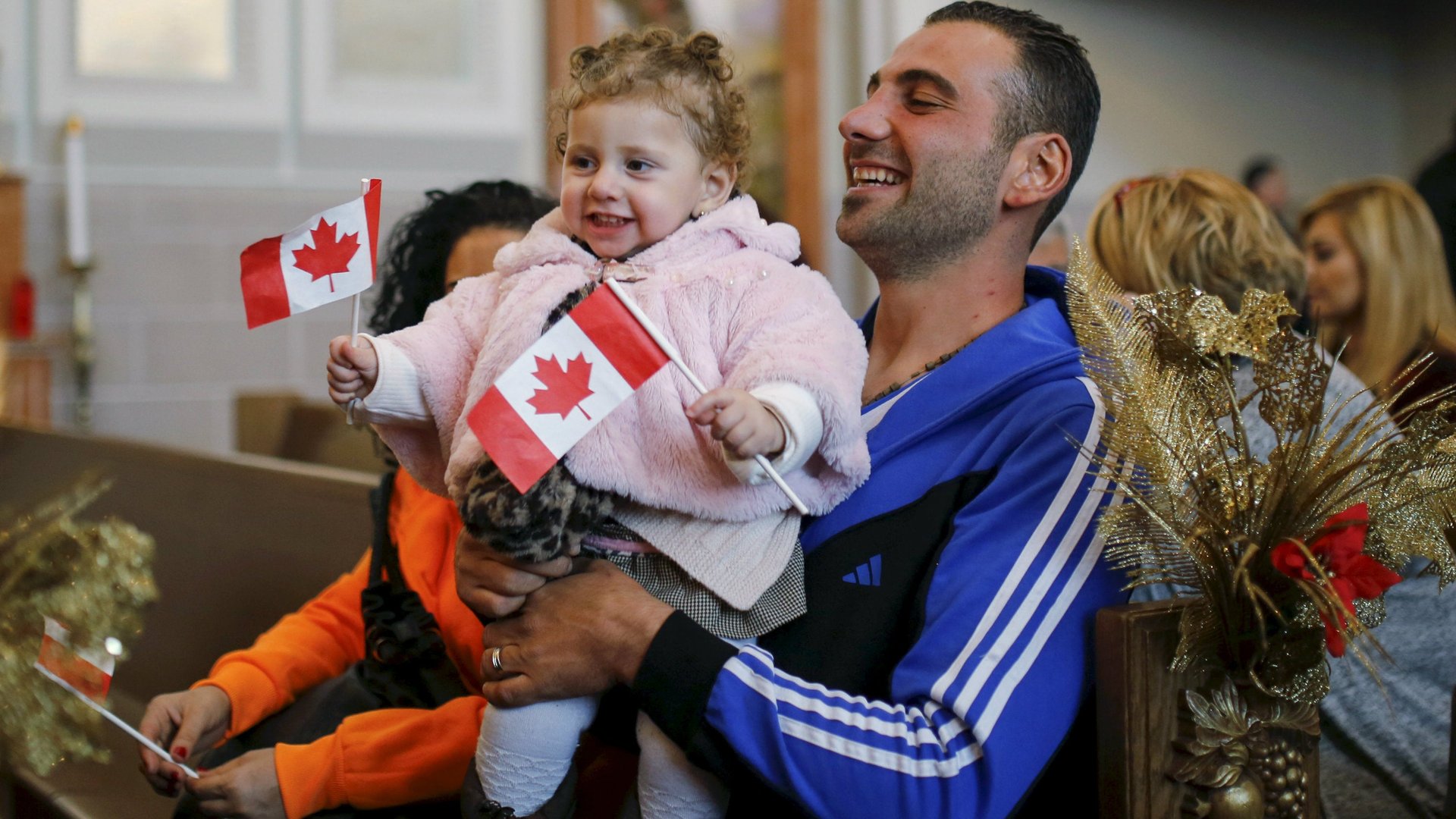Canada pledges to double its intake of Syrian refugees in 2016
Canada plans to take in even more Syrian refugees next year.


Canada plans to take in even more Syrian refugees next year.
The government initially pledged to resettle 25,000 Syrian refugees by the end of February, but will now up that amount to 50,000 by the end of 2016.
John McCallum, minister of immigration and citizenship, made the announcement when visiting Syrian refugees in Amman, Jordan who were preparing to head to Canada. He reportedly told one family: “Everyone in Canada is waiting to meet you.”
Canada will be working with International Organization for Migration, the UN refugee agency, and the Jordanian government to quickly vet the refugees and resettle them. McCallum claimed that all 10 provinces in Canada are in favor of the move.
The first plane of refugees arrived in the country earlier this month (Dec. 10) and prime minister Justin Trudeau was there to personally greet them. Volunteers also turned up to distribute donations and gift bags.
By welcoming the first group of refugees, Trudeau wanted his country to set an example by ”showing the world how to open our hearts.”
1,409 Syrian refugees have arrived in Canada since Nov 4, with 18,717 applications currently being considered and 2,251 applications already approved, according to the BBC.
In comparison, the US plans to resettle 10,000 Syrian refugees over the next year, a pledge which has been unpopular with American public and drawn criticism from legislators. Following the Paris terrorist attacks, more than half of US governors refused to help resettle Syrian refugees, citing security concerns. Even Texas—the most welcoming US state for refugees—has somewhat turned its back on Syrian refugees. President Obama has instead chosen to stand by them, calling on people to welcome Syrian refugees as latter-day Pilgrims.
2015 is currently on pace to have a record-breaking number of refugees: the global refugee total reached 20.2 million in June 2015. And though a million refugees fled to Europe this year, the EU has only resettled 116 refugees it had planned to relocate. The process has been so slow that Germany, which has taken in more refugees than the US has in ten years, is threatening legal action against member states refusing to take in their agreed share of refugees.